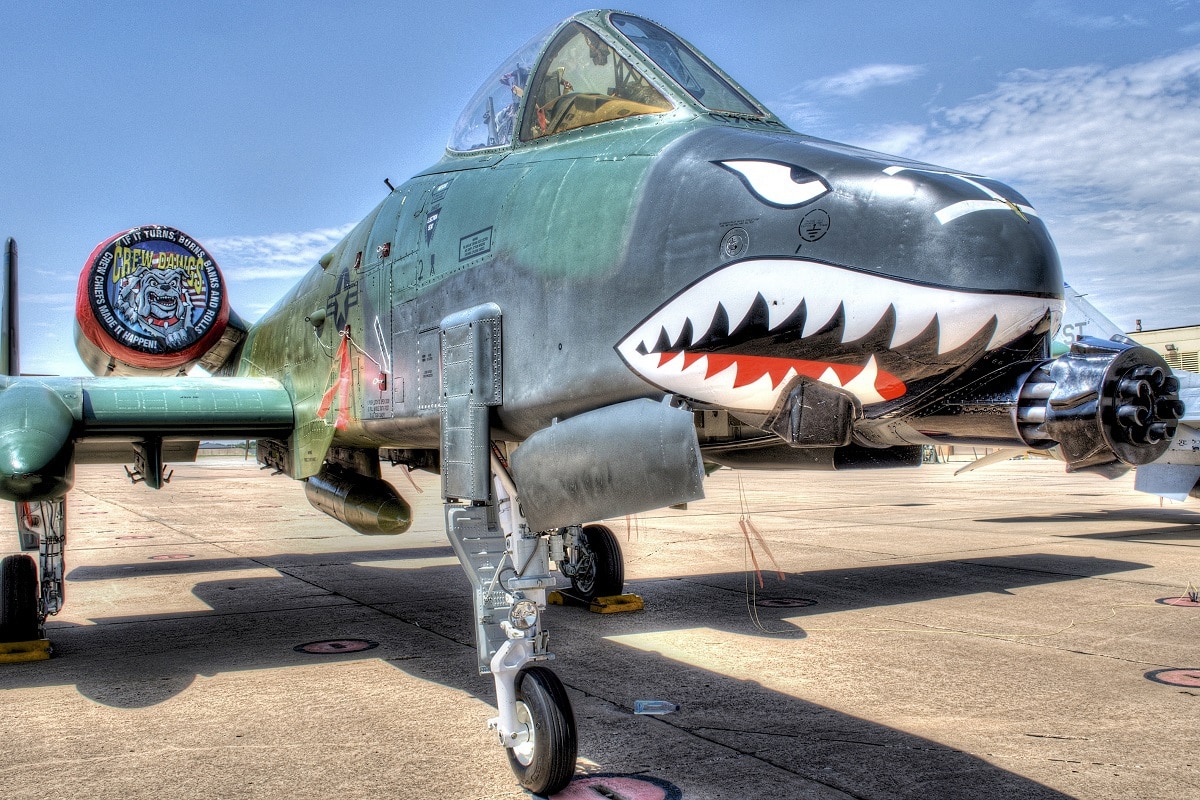The A-10 Warthog Can Kill Newer Tank
There are many scholars and experts that say the A-10 Warthog can’t survive in a modern war like the one being waged in Ukraine. And yet, a recent test might give those who support the A-10 a little more hope: The Fairchild A-10 Thunderbolt II was tailor-made for close-air support, and with its unique GAU-8/A Avenger 30mm (1.18-inch) cannon, it has proved to be among the most effective anti-tank aircraft ever devised. Earlier this year, the United States Air Force demonstrated how the aircraft, which has also earned the nickname “Warthog” among its pilots, is able to knock out modern tanks equipped with armor improvements.
The first-ever tests were conducted at the Nevada Test and Training Range, February 14-25, 2022 – and the 422nd and 59th Test and Evaluation Squadrons successfully proved that modern-day armored vehicles equipped with Explosive Reactive Armor were still vulnerable to the A-10C Thunderbolt II’s GAU-8 Avenger.
In each of the test missions, a pair of A-10Cs employing armor-piercing incendiary rounds took to the test range and fired at two surrogate main battle tanks equipped with ERA. The pilots varied attack parameters and direction in order to evaluate the weapon’s effects against the up-armored targets. Through post-shot analysis of video, photo imagery, and visual inspection of the targets, analysts were able to ascertain the battle damage inflicted upon the tanks and determine that the tanks were rendered inoperative, the press office of the 53rd Wing reported.
“A typical A-10 gun employment uses 120 rounds, which means an A-10 is capable of employing fires on nine to ten targets before exhausting its gun munitions,” said Maj. Kyle Adkison, 422nd TES A-10C division commander. “Against large fielded forces, A-10 formations are capable of engaging nearly 40 armored vehicles with 30-millimeter munitions. That’s a significant amount of firepower.”
The 30mm GAU-8/A cannon, which protrudes from the nose of the plane, can fire 3,900 bullets per minute. The development of the weapon dates back to the early 1970s when the United States Air Force issued a request for proposal (RFP) for a 30mm rapid-fire cannon that could be used with its A-X Close Air Support aircraft. General Electric developed a prototype designated the GAU-8. In addition to the weapon, the government contract also called for the development of four types of ammunition that would be used with the cannon and these included Armor Piercing Incendiary, High Explosive Incendiary, Semi-Armor Piercing High Explosive, and Target Practice.
A-10 Precision Kill
In addition to 30mm gun rounds, the tests also collected data on AGM-65L Maverick and AGR-20E Advanced Precision Kill Weapons System effectiveness against the armored vehicles.
“This has been an ongoing test effort since the idea originated in 2020,” added 1st Lt. Christopher Earle, 59th TES A-10C operations test analyst. “Now that it’s come to fruition and proven successful, we will work towards testing other types of anti-armor munitions in the Air Force inventory against ERA and collect more data.”
The A-10 is considered well suited for Agile Combat Employment roles. The recent Air Force test was seen as proof that the A-10 can continue to deliver massive rapid firepower with devastating effects on enemy vehicles in a contested environment.
Now a Senior Editor for 1945, Peter Suciu is a Michigan-based writer who has contributed to more than four dozen magazines, newspapers and websites. He regularly writes about military hardware, and is the author of several books on military headgear including A Gallery of Military Headdress, which is available on Amazon.com. Peter is also a Contributing Writer for Forbes.

